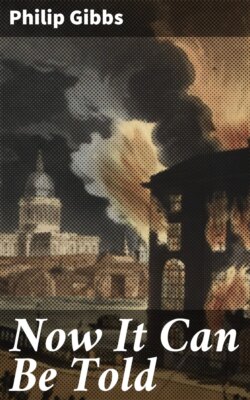Читать книгу Now It Can Be Told - Philip Gibbs - Страница 27
На сайте Литреса книга снята с продажи.
XX
ОглавлениеTable of Contents
I met many other generals who were men of ability, energy, high sense of duty, and strong personality. I found them intellectually, with few exceptions, narrowly molded to the same type, strangely limited in their range of ideas and qualities of character.
“One has to leave many gaps in one's conversation with generals,” said a friend of mine, after lunching with an army commander.
That was true. One had to talk to them on the lines of leading articles in The Morning Post. Their patriotism, their knowledge of human nature, their idealism, and their imagination were restricted to the traditional views of English country gentlemen of the Tory school. Anything outside that range of thought was to them heresy, treason, or wishy-washy sentiment.
What mainly was wrong with our generalship was the system which put the High Command into the hands of a group of men belonging to the old school of war, unable, by reason of their age and traditions, to get away from rigid methods and to become elastic in face of new conditions.
Our Staff College had been hopelessly inefficient in its system of training, if I am justified in forming such an opinion from specimens produced by it, who had the brains of canaries and the manners of Potsdam. There was also a close corporation among the officers of the Regular Army, so that they took the lion's share of staff appointments, thus keeping out brilliant young men of the new armies, whose brain-power, to say the least of it, was on a higher level than that of the Sandhurst standard. Here and there, where the unprofessional soldier obtained a chance of high command or staff authority, he proved the value of the business mind applied to war, and this was seen very clearly—blindingly—in the able generalship of the Australian Corps, in which most of the commanders, like Generals Hobbs, Monash, and others, were men in civil life before the war. The same thing was observed in the Canadian Corps, General Currie, the corps commander, having been an estate agent, and many of his high officers having had no military training of any scientific importance before they handled their own men in France and Flanders.
